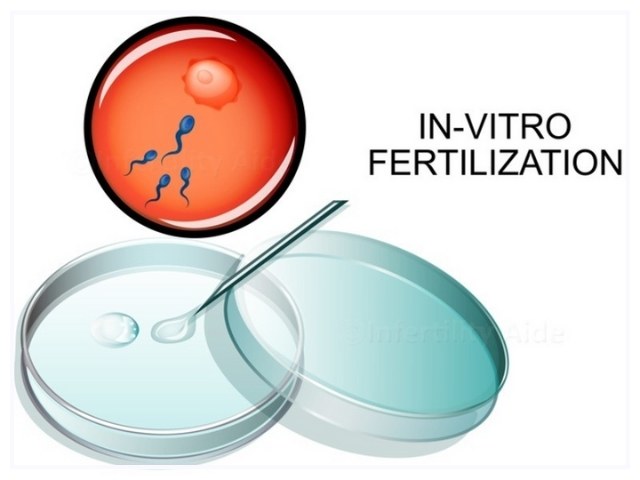Male Infertility Assessment

Male Infertility Assessment in Sirsa, Haryana
Male infertility is a condition in which a man experiences difficulties in contributing to a successful pregnancy. It is typically defined as the inability to achieve pregnancy after at least one year of regular, unprotected sexual intercourse. Male infertility is a result of various factors that can affect a man's ability to produce healthy, motile (able to move), and normally shaped sperm or to deliver that sperm into the female reproductive tract. These factors may include:
- Low Sperm Count (Oligospermia): When a man's semen contains fewer sperm than the normal range, it can reduce the chances of fertilizing an egg.
- Poor Sperm Motility: Sperm need to swim effectively to reach and penetrate an egg. Reduced motility can hinder the ability of sperm to reach the egg.
- Abnormal Sperm Morphology: Sperm with abnormal shapes may have difficulty penetrating the egg, which can affect fertilization.
- Erectile Dysfunction: Difficulty achieving or maintaining an erection can make sexual intercourse and ejaculation problematic, affecting fertility.
- Blockages or Structural Abnormalities: Any obstructions or physical issues in the male reproductive tract can hinder the release of sperm during ejaculation.
- Genetic Factors: Some genetic abnormalities can affect sperm production, sperm function, or the overall reproductive system.
- Infections or Inflammation: Infections of the reproductive tract can damage sperm or disrupt their function.
- Varicocele: This is the enlargement of veins within the scrotum, which can raise the temperature around the testicles and negatively impact sperm production.
- Lifestyle Factors: Poor lifestyle choices such as excessive alcohol consumption, smoking, drug use, obesity, and high levels of stress can contribute to male infertility.
- Medications and Medical Treatments: Some medications and medical treatments, such as chemotherapy or radiation therapy, can harm sperm
Male infertility Assessment in Sirsa, Haryana typically involves a combination of medical history assessments, physical examinations, semen analysis, hormonal tests, and sometimes imaging studies. Once the underlying cause or causes are identified, treatment options can be explored, which may include lifestyle changes, medications, surgery, or assisted reproductive techniques like in vitro fertilization (IVF) or intracytoplasmic sperm injection (ICSI). It's important to note that male infertility can often be addressed with appropriate medical care, lifestyle adjustments, or assisted reproductive technologies, allowing many couples to overcome fertility challenges and achieve pregnancy.
Here's a step-by-step guide on Male Infertility Assessment in Sirsa, Haryana:
- Initial Consultation: The process usually begins with an initial consultation with a healthcare provider who specializes in fertility or reproductive health. This may be a reproductive endocrinologist, urologist, or other specialist.
- Medical History: During the consultation, the healthcare provider will take a detailed medical history, which may include questions about overall health, sexual history, past surgeries, chronic illnesses, medications, and lifestyle factors that could affect fertility.
- Physical Examination: A physical examination of the genital area is performed to check for any abnormalities, swelling, or signs of infection. This can help identify any physical issues that may be contributing to infertility.
- Semen Analysis: One of the most important diagnostic tests for male infertility is a semen analysis. A semen sample is collected, usually through masturbation, and analyzed in a laboratory. The analysis assesses several parameters, including sperm count, motility (movement), morphology (shape), volume, and other characteristics of the sperm. This test provides critical information about the quality and quantity of sperm.
- Hormone Testing: Blood tests may be conducted to measure hormone levels, particularly testosterone, follicle-stimulating hormone (FSH), and luteinizing hormone (LH). Hormonal imbalances can affect sperm production and quality.
- Genetic Testing: In some cases, genetic testing may be recommended to identify any genetic factors that could impact fertility, especially if there is a family history of genetic conditions or specific abnormalities are suspected.
- Scrotal Ultrasound: A scrotal ultrasound is an imaging test that uses sound waves to create images of the testicles and surrounding structures. It can help identify issues such as varicoceles (enlarged veins in the scrotum) or structural abnormalities.
- Post-Ejaculation Urinalysis: This test checks for the presence of sperm in the urine after ejaculation. Retrograde ejaculation, a condition where sperm is forced into the bladder instead of exiting the penis, can be a cause of male infertility.
- Consultation and Diagnosis: After completing these assessments, the healthcare provider will discuss the results with the individual and their partner (if applicable) and make a diagnosis based on the identified causes of infertility.
- Treatment Plan: Male Infertility Treatment in Haryana is a personalized fertility plan which will be developed according to your assessment results. Treatment may involve lifestyle changes, medications, surgery, or assisted reproductive techniques such as in vitro fertilization (IVF) or intracytoplasmic sperm injection (ICSI), depending on the specific diagnosis.
Male infertility treatment in Sirsa, Haryana depends on the underlying cause or causes of the infertility. Once a thorough assessment has been conducted to identify the specific issues, a healthcare provider can recommend appropriate treatments. Let’s get into treatment details below:
- Lifestyle Modifications: In some cases, simple lifestyle changes can significantly improve fertility. These may include maintaining a healthy weight, quitting smoking, reducing alcohol consumption, managing stress, and avoiding exposure to environmental toxins.
- Medications: Medications can be prescribed for the reasons given below.
- Hormone therapy: To correct hormonal imbalances affecting sperm production.
- Antibiotics: To treat infections that may be impairing sperm function.
- Antioxidants: These supplements may improve sperm quality.
- Surgery: Surgical interventions may be recommended to correct anatomical issues that are obstructing sperm flow or causing other problems. Common procedures include:
- Varicocelectomy: Surgery to repair varicoceles (enlarged veins in the scrotum).
- Vasectomy reversal: For men who have undergone a vasectomy and now wish to restore fertility.
- Epididymal or testicular sperm retrieval: Surgical procedures to extract sperm directly from the epididymis or testicles for use in assisted reproductive techniques.
- Assisted Reproductive Techniques (ART): When natural conception is not possible due to severe male infertility, assisted reproductive techniques may be employed. These include:
- Intrauterine Insemination (IUI): Sperm are processed and directly injected into the woman's uterus during her fertile period.
- In Vitro Fertilization (IVF): Eggs are retrieved from the woman, fertilized with sperm in a laboratory, and resulting embryos are transferred to the woman's uterus.
- Intracytoplasmic Sperm Injection (ICSI): A single sperm is injected directly into an egg during IVF, which is particularly useful for severe male infertility cases.
- Donor sperm: Sperm from a healthy donor can be used for insemination or IVF if the male partner's sperm quality is extremely poor.
Sperm and semen analysis are essential diagnostic tests used to assess male fertility and investigate potential causes of male infertility. These tests provide valuable information about the quantity, quality, and functionality of sperm in the semen. Here's a breakdown of what each analysis involves:
Semen Analysis:
- A semen analysis, also known as a sperm analysis, assesses the properties of the semen (the fluid ejaculated during orgasm) as a whole. It provides information about various aspects of the ejaculate, including volume, pH, and the presence of any white blood cells or infections.
Collection: The man is asked to ejaculate into a sterile container. This can be done at the clinic or at home, as long as the sample is delivered to the laboratory within a specified timeframe.
Examination: The semen sample is examined under a microscope to assess its characteristics.
Parameters measured in semen analysis may include:
- Semen Volume: The amount of fluid ejaculated.
- Sperm Count: The number of sperm in a given volume of semen. A low sperm count can be an indication of infertility.
- Sperm Motility: The percentage of sperm that are moving effectively. Motility is crucial for sperm to reach and fertilize an egg.
- Sperm Morphology: The percentage of sperm that have a normal, healthy shape. Abnormal sperm morphology can affect fertility.
- pH Level: The acidity or alkalinity of the semen.
- White Blood Cells: The presence of white blood cells may indicate an infection or inflammation.
- The analysis typically involves the following steps:
- The results of the semen analysis are compared to reference values to determine if there are abnormalities that could contribute to male infertility.
Sperm Analysis:
- While a semen analysis provides an overview of the ejaculate as a whole, a sperm analysis delves deeper into the characteristics of sperm themselves.
- Sperm analysis involves:
- Assessment of sperm concentration (sperm count) per milliliter of semen.
- Evaluation of sperm motility, categorizing sperm as progressively motile, non-progressively motile, or immotile.
- Examination of sperm morphology to determine the percentage of normally shaped sperm.
- Identifying any signs of agglutination (clumping) of sperm, which could indicate the presence of antisperm antibodies.
- Sperm analysis can also involve tests for sperm vitality, which assesses the percentage of live sperm in the sample.
These analyses are critical tools for diagnosing male infertility in Sirsa, Haryana and guiding treatment decisions. Abnormal results can help healthcare providers identify potential causes of infertility and develop targeted treatment plans. It's important to note that sperm and semen analysis results can vary over time, so multiple tests may be recommended to establish a reliable diagnosis.
If you and your partner are experiencing challenges in achieving a successful pregnancy and suspect that male infertility might be a contributing factor, we encourage you to seek an evaluation at our fertility clinic. Our clinic specializes in assessing and addressing male fertility issues. Our comprehensive evaluation process includes thorough medical history assessments, physical examinations, state-of-the-art semen and sperm analysis, hormonal tests, and other specialized assessments as needed. Our experienced team of fertility specialists is dedicated to helping you understand the causes of male infertility and developing personalized treatment plans tailored to your unique needs. We are committed to providing compassionate care and support as we work together to help you achieve your goal of starting or expanding your family. Don't hesitate to contact us to schedule an evaluation and take the first step towards understanding and addressing male infertility.
Book Your Free Consultation Now
OTHER TREATMENTS

IUI
Intrauterine insemination (IUI) — a type of artificial insemination — is a procedure

Infertility Assessment Female
Infertility is defined as trying to get pregnant with frequent, unprotected sex

IVF
In vitro fertilization (IVF) is a complex series of procedures used to help with fertility
